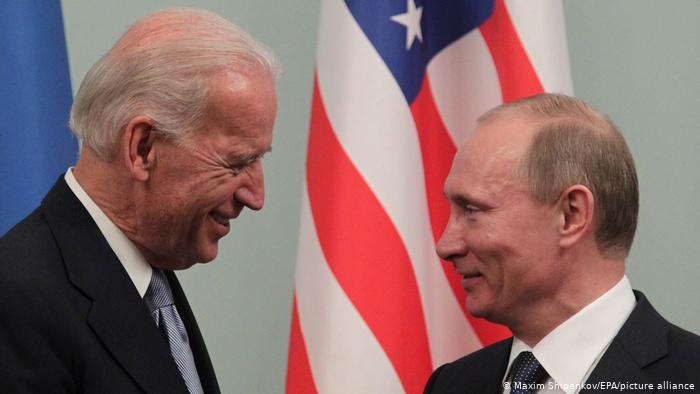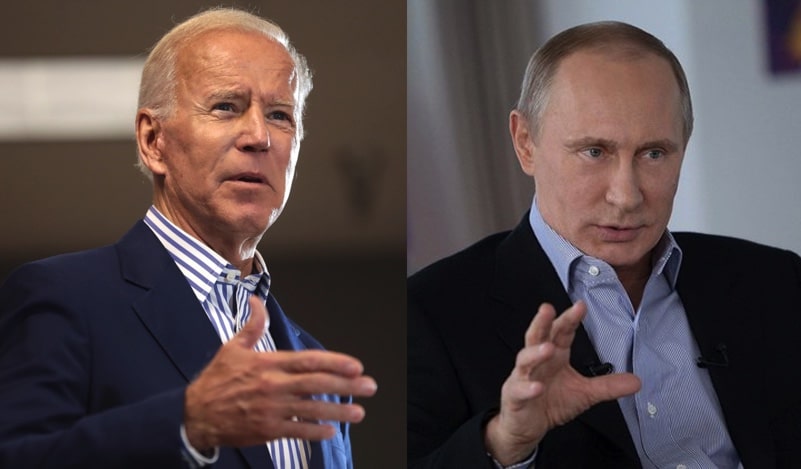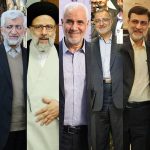Outcome of Biden-Putin summit, initially hinged on Russia, derives from psychological, mental and age peculiarities of the Russian president.
Analytical report by John Sipher, drafted for the Robert Lansing Institute for Global Threats and Democracies Studies on the eve of the meeting in Geneva, emphasized that Russia’s policy shift entirely depends on Moscow.
Putin speaks in terms of the Cold War. He, de facto, exists in that historic period, not least because of age peculiarities that molded his personality. Putin’s regime relies on external brinkmanship: there should be foreign adversary to be held responsible for the crisis, the consequences of corrupt governance, low living standards and low income of people. Foreign adversary galvanizes the people and switches their attention from domestic concerns to personal safety, that depends on the Russian government and Putin. De facto, that is a deal: the government protects the people from alleged adversary created by propaganda, as the people overlook evidence that their rights and freedoms are being violated.
If the image of adversary disappears, the people will need another one, and that will be the Russian government, thus triggering civil war and Russia’s collapse. At the same time, if Russia accepts democracy development standards, Putin will lose power and the regime will change, which is unacceptable for the Kremlin, focused on tsars and Soviet leaders who ruled for life.
The Kremlin likes tit-for-tat: any charge is answered reciprocally. That answer addresses the Russian people as well and shows that the government is in an external hostile environment and is the only one to defend the country. For that purpose, it entwines various counter-charges, often related to historic development. But such dynamics cannot lead to constructive settlement and rules out the scenario when Russia backs off from hostile actions.
That explains Putin’s stance on cyberattacks against critical US infrastructure. He accused the United States, Canada and the UK of having launched most of the cyberattacks around the world. It is obvious, however, that any criminal group in Russian cyberspace is tied or controlled by Russian intelligence or the FSB, and operations in cyberspace are used to bankroll these units, like in North Korea.
The policy of denial lies at the heart of Russia’s foreign policy, thus taking any frank or confidential dialogue off the table. For example, when discussing the Arctic, Putin denied the region was being militarized. But there are well-known facts that Russia persistently constructs military facilities in the Arctic Circle, develops the weapons and special equipment for operations in low temperatures, and legislates weapon employment against the ships passing along the Northern Sea Route.
The Kremlin, coming against pressure after gross violations of Ukraine’s sovereignty, keeps on selling it’s pure from the conflict, as it actively supplies arms and armaments to Russian militants and Russia directly commands and controls the units of the unrecognized separatist republics.Moscow, backed by some EU political actors, is seeking to change the agenda for the Minsk agreements, bringing the political part to the fore, eager to change the Constitution and hold elections in the occupied areas. Kyiv believes the elections should be held in appropriate security environment, provided ceasefire and prisoner exchange are observed. Ukraine insists the elections held amid occupation, domestic terror and propaganda cannot allow for the people to express their will freely, as the Russians efficiently monitor them. Russia, meanwhile, has chosen to deny it is a party to the conflict. That offers it a possibility to call the shots and shrink from responsibility for hostilities in Ukraine.
In this context, the Kremlin is sure to keep distance from the dispute on how to bring the Donbass issue to a close, as it remains a source for the roil in the area.
As with Syria, the Kremlin thus puts itself at the heart of global agenda, gradually expanding its area of intervention.
That is a lose-lose situation that requires international solutions to bring Russia to make peace and stop roiling Ukraine. But Russia cannot be expected to abandon such behavior pattern on its own, as it will not be able to hold the world’s attention or demand certain decisions.

Read also: The Russia Question
The outcome of Russia-US summit has not shown substantial progress for the START III transformation. Russia previously agreed to prolong the old agreement and now has almost 5 years to consult and develop a new text of the agreement. The treaty is likely to be transformed, therefore, with the participation of China, as Russia will have to convince Beijing and Washington not to boost defense spending amid shortage of funds.





